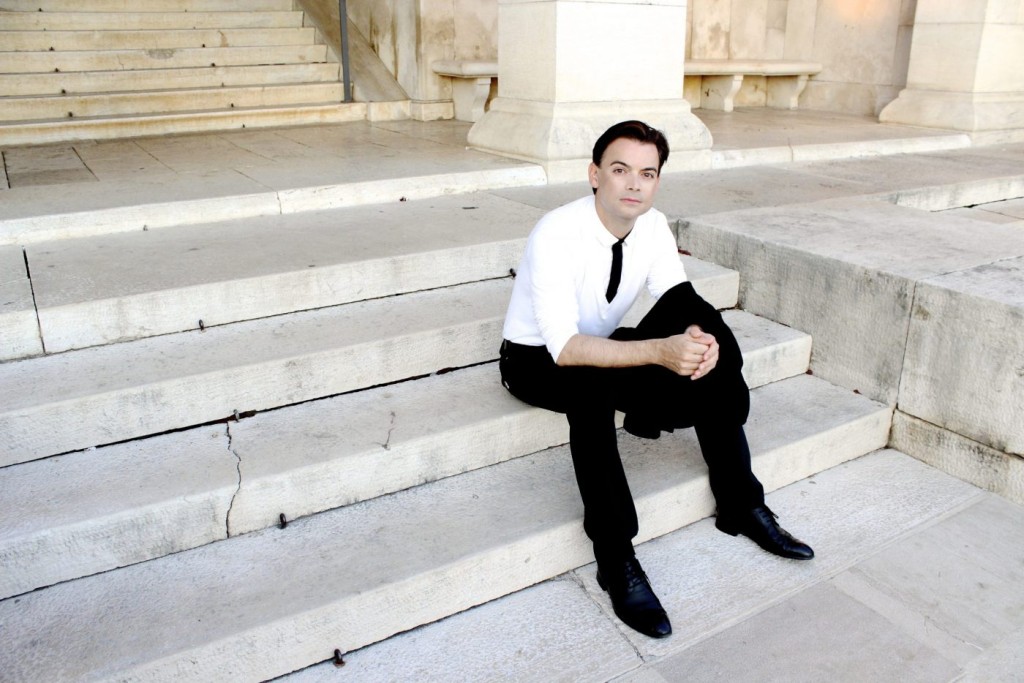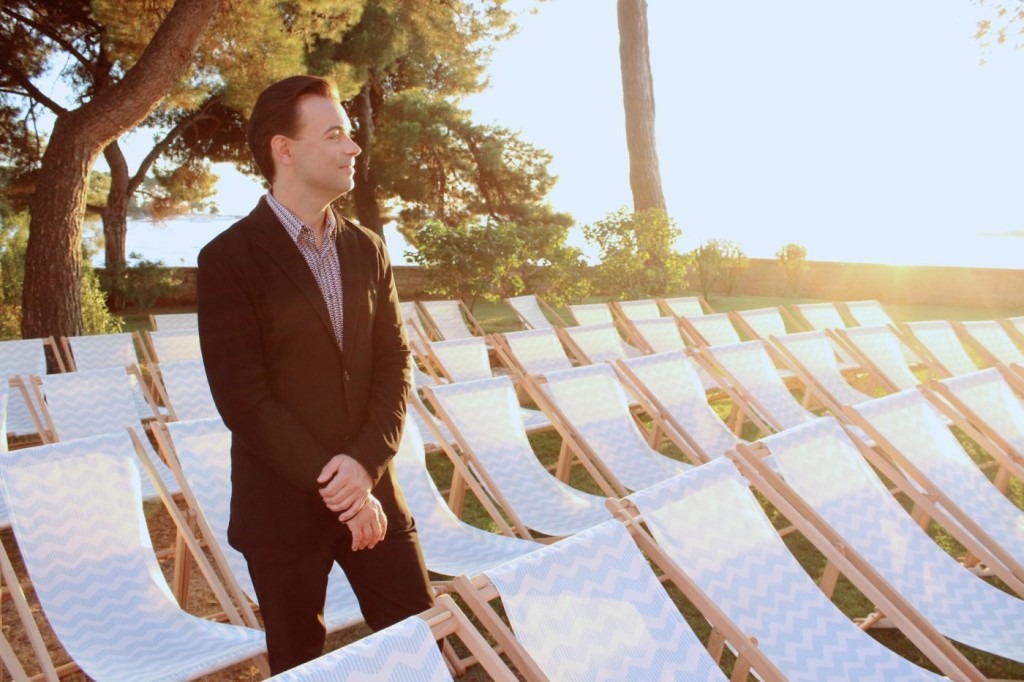with Mozart in the Minor
May 20 & 21
St Pete and Clearwater
Details here
Dejan Lazić knows a thing or two about Wolfgang Amadeus Mozart.
After all, the globe-trotting pianist grew up in Salzburg – the composer’s birthplace – and studied piano, clarinet and composition at, you guessed it, the Mozarteum University.
Today, the 46-year-old keyboard virtuoso makes an indelible imprint as an interpreter of Mozart, and listeners can judge for themselves this month when he joins The Florida Orchestra in the Piano Concerto No. 20 in D minor, K. 466.
This dark and turbulent work opens the orchestra’s final masterworks program of the season, and Music Director Michael Francis anchors the second half with Wagner’s Ring Without Words, a 70-minute symphonic quilt of the four music dramas that make up the 16-hour Ring of the Nibelung.
The concerto makes a fitting companion, as this isn’t the ebullient Mozart we often hear, but music full of restless agitation. The sublime romance, with its aria-like passages in B flat, seems torn from one of the composer’s operas. Beethoven was so impressed with the work that he composed his own cadenzas for it.
The Croatian-born Lazić has plenty to say about the intricacies of this music, and we asked him to share his thoughts on Mozart, how he prepares for a concert, and what he expects of himself in performance. His answers are edited for clarity.

Mozart composed his piano concertos primarily in major keys, with only two outcasts among the 27 (D minor and C minor). The same goes for his 41 symphonies, with all but two in the major. What attracts you to this darker side of the composer?
“It’s always a very special, deep and dramatic occasion when Mozart composes in a minor key, and especially the key of D minor, which reminds us of Don Giovanni and the Requiem.
“Even more so, the shiny key of D major at the end of the concerto comes as water from a spring − a great emotional relief.’’
As a pianist, how do you approach a Mozart concerto as opposed to say, one by Beethoven, Brahms or Rachmaninoff?
“Mozart saw himself primarily as an opera composer, despite the fact that he was such a fantastic pianist, violinist and symphonist.
“When approaching Mozart and his piano works, whether concertos or sonatas, you have to be aware of dramatic contrasts, the specific period when it was composed, and other musical and non-musical circumstances behind its creation. You also have to consider what chamber music, symphonies and operas he was working on at that moment.
“That way, you get the whole picture about style, technique, and all the important nuances that help us better understand his unique language.’’
We all know that Mozart sounds simple to the ear, at least to most listeners. But is there an intricate scaffolding hidden behind it?
“Yes, absolutely! When analyzing his works in detail, it’s very quickly clear just how much complexity, inventiveness, inspiration and knowledge is actually there.
“Also, you have his unmistakable instincts and overall great taste. His later piano concertos, such as the D minor, are not only virtuosic, highly demanding concertos for the solo instrumentalist – but they’re symphonically conceived with very important chamber music-like segments.
“To put all these layers together requires a great balance of expression.’’
What do you hope to accomplish this weekend? Is there a key thought or philosophy that drives you?
“To be as honest as I can, as informed about his language and his intentions, and to bring that Mozart spirit out of the score.
“When performing together with fantastic colleagues such as TFO and Michael Francis, we want to mutually inspire each other from the very first rehearsal, listen to each other, act and react collectively. Also, it’s important to express those things that aren’t immediately visible in the score, things that lie between the lines or notes.’’
Finally, you travel the world playing a lot of repertoire pieces. How do you keep them fresh, and how do you stay on top of your game when you are constantly on the move?
“By planning well in advance and to be constantly fit, mentally, physically and technically.
“I like to see myself as a musician playing piano, rather than just as a pianist, since I also compose and conduct and have played the clarinet for 15 years. Different repertoire works complement each other, make things fresh and inspiring, and they can be helpful when approaching known works anew.
“Of course, it requires a lot of work, but I love that kind of challenge. It keeps me on my toes and it’s never safe or convenient. That’s a very healthy thing for a creative artist.’’
The Florida Orchestra with Dejan Lazić
May 20 at 8 pm
Mahaffey Theater
400 1st St. S.
St. Petersburg
May 21 at 7:30 pm
Ruth Eckerd Hall
1111 McMullen Booth Road
Clearwater
You can find ticket information here.
Originally published in the Florida Orchestra Blog.






